Emission Scenarios for the Philippines’ Transport Sector: Overview of Existing Studies
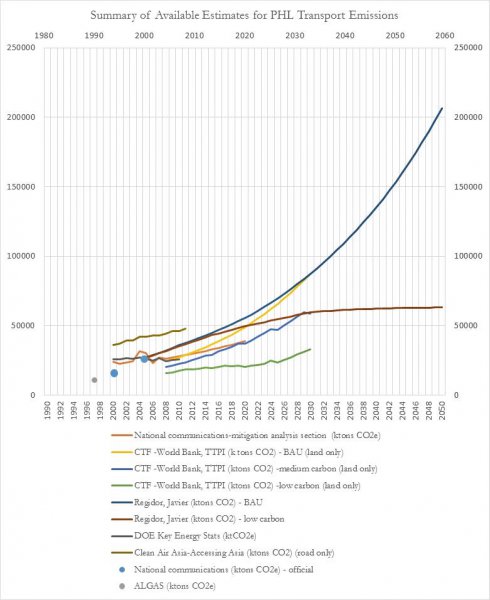 Understanding uncertainties and different outcomes for GHG emission scenarios by various studies is important for gaining insight in the transport sector’s role in climate change mitigation. This is useful for example in the context of the Intended Nationally Determined Contributions, that some countries are expected to communicate to the UNFCCC in 2015.
Understanding uncertainties and different outcomes for GHG emission scenarios by various studies is important for gaining insight in the transport sector’s role in climate change mitigation. This is useful for example in the context of the Intended Nationally Determined Contributions, that some countries are expected to communicate to the UNFCCC in 2015.
Fossil Fuel Subsidy Reform can reduce Greenhouse Gas Emissions Globally by 6-13%
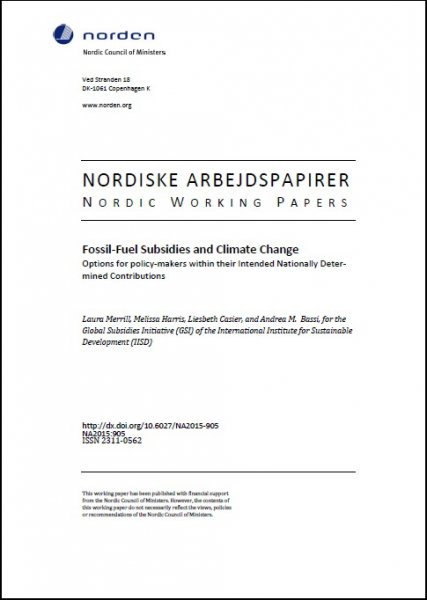 A new report from the Nordic Council of Ministers and the Global Subsidies Initiative of IISD finds that the removal of fossil-fuel subsidies to consumers (US$ 543 billion in 2014) and to society could reduce global greenhouse gas (GHG) emissions by between 6-13% by 2050.
A new report from the Nordic Council of Ministers and the Global Subsidies Initiative of IISD finds that the removal of fossil-fuel subsidies to consumers (US$ 543 billion in 2014) and to society could reduce global greenhouse gas (GHG) emissions by between 6-13% by 2050.
UNESCAP calls for papers for the 85th issue of the Transport and Communications Bulletin
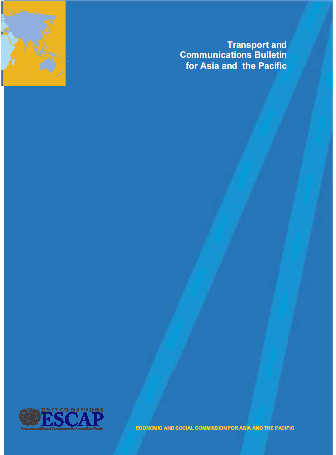 Sustainable urban transport practices are necessary to support the continued growth of cities in the region. Innovative policies and integrated transport planning which address the growing problems of fossil fuel consumption, greenhouse gas emissions, traffic congestion and road accidents, are needed in order to provide a better quality of life for the people.
Sustainable urban transport practices are necessary to support the continued growth of cities in the region. Innovative policies and integrated transport planning which address the growing problems of fossil fuel consumption, greenhouse gas emissions, traffic congestion and road accidents, are needed in order to provide a better quality of life for the people.
UNESCAP Committee on Transport publishes report of the 4th Session
The fourth session of the United Nations Economic Commisssion on Asia and Pacific (UNESCAP) Committee on Transport took place on 15-17 October 2014 in Bangkok, Thailand. The Committee session reviewed national, sub-regional and regional progress in transport, and to discuss the ways to address common challenges and potential for future direction of the secretariat’s work.
Transport at COP20: Despite Limited Leaps, Lima Limps
This report assesses the 20th Conference of the Parties (COP20) of the United Nations Framework Convention on Climate Change (UNFCCC) in Lima, Peru in December 2014, as viewed through the lens of sustainable transport.
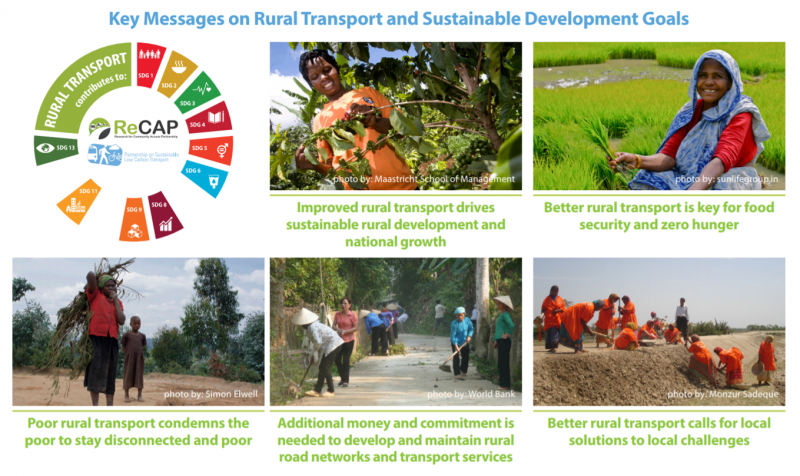
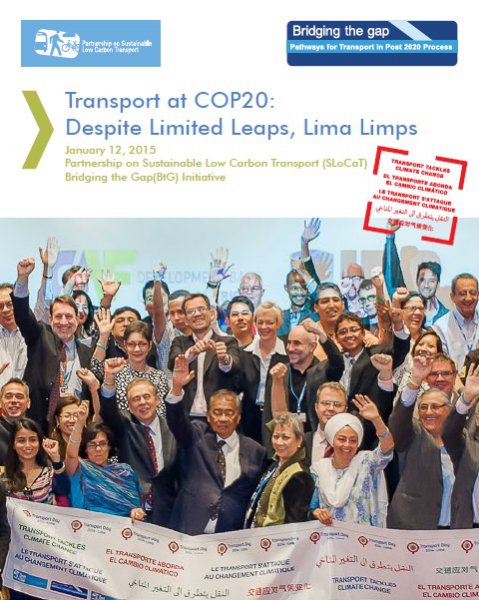 The
The